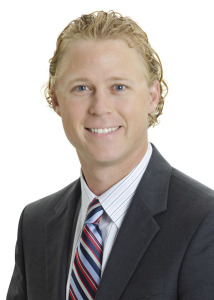The attorneys at Williams Mullen are getting more serious about the booze business.
The downtown-based law firm established its Alcoholic Beverage Control practice earlier this month to more formally organize its lawyers dealing with ABC issues.
The practice, according to Williams Mullen spokesperson Caitlin Coakley, was developed as more attorneys started representing businesses dealing with alcohol in line with the rapid rise in recent years of independent breweries, wineries and distilleries.
Consisting of 21 attorneys throughout the firm’s offices in Virginia and North Carolina, the practice will assist businesses as they maneuver through the many laws and regulations dictating how alcohol is manufactured, distributed and sold.
In both Virginia and North Carolina, the state government controls alcohol sales.
“The practice group is a way of drawing attention to a specific industry. But because we’re a business-based law firm, the tentacles of that reach out into litigation, lobbying, tax and all the other aspects,” said Patrick Cushing, an attorney with the practice who has been with the firm for three years.
The practice represents various clients, ranging from smaller wineries and breweries to large companies like Anheuser-Busch in Williamsburg, Va.
The ABC industry in Virginia was originally set up as a three-tiered system consisting of manufacturing, distribution and retail sales. No business involved in one tier could work within another. That, however, has changed with the introduction of wineries, breweries and other alcohol-related businesses that both manufacture and sell alcohol onsite, requiring more legal representation.
“You really have laws and regulations driving the business model,” Cushing said.
Cushing, for example, worked with a client who wanted to sell growlers of hard cider, when previously only beer was allowed to be sold in that quantity. Though the distinction between cider and beer may seem insignificant, he had to work with the ABC board to get permission for the client.
“It’s daunting for business owners to come into this heavily regulated system,” he said.
Williams Mullen is at least the second local law firm to formalize a practice group focused on the alcohol industry. ThompsonMcMullan made a similar move two years ago as the brewery scene was beginning to take off around Virginia.
It’s also the latest example of a local law firm responding to a growing niche industry that brings with it often uncharted legal waters. At least three Richmond firms, including Williams Mullen, Hunton & Williams and LeClairRyan, have formed practice groups focusing on unmanned aircraft systems, or drones.
The attorneys at Williams Mullen are getting more serious about the booze business.
The downtown-based law firm established its Alcoholic Beverage Control practice earlier this month to more formally organize its lawyers dealing with ABC issues.
The practice, according to Williams Mullen spokesperson Caitlin Coakley, was developed as more attorneys started representing businesses dealing with alcohol in line with the rapid rise in recent years of independent breweries, wineries and distilleries.
Consisting of 21 attorneys throughout the firm’s offices in Virginia and North Carolina, the practice will assist businesses as they maneuver through the many laws and regulations dictating how alcohol is manufactured, distributed and sold.
In both Virginia and North Carolina, the state government controls alcohol sales.
“The practice group is a way of drawing attention to a specific industry. But because we’re a business-based law firm, the tentacles of that reach out into litigation, lobbying, tax and all the other aspects,” said Patrick Cushing, an attorney with the practice who has been with the firm for three years.
The practice represents various clients, ranging from smaller wineries and breweries to large companies like Anheuser-Busch in Williamsburg, Va.
The ABC industry in Virginia was originally set up as a three-tiered system consisting of manufacturing, distribution and retail sales. No business involved in one tier could work within another. That, however, has changed with the introduction of wineries, breweries and other alcohol-related businesses that both manufacture and sell alcohol onsite, requiring more legal representation.
“You really have laws and regulations driving the business model,” Cushing said.
Cushing, for example, worked with a client who wanted to sell growlers of hard cider, when previously only beer was allowed to be sold in that quantity. Though the distinction between cider and beer may seem insignificant, he had to work with the ABC board to get permission for the client.
“It’s daunting for business owners to come into this heavily regulated system,” he said.
Williams Mullen is at least the second local law firm to formalize a practice group focused on the alcohol industry. ThompsonMcMullan made a similar move two years ago as the brewery scene was beginning to take off around Virginia.
It’s also the latest example of a local law firm responding to a growing niche industry that brings with it often uncharted legal waters. At least three Richmond firms, including Williams Mullen, Hunton & Williams and LeClairRyan, have formed practice groups focusing on unmanned aircraft systems, or drones.




